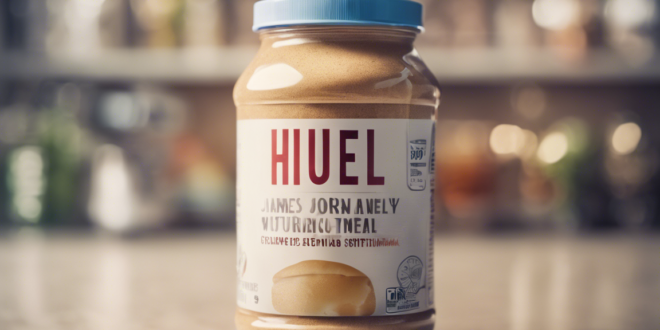Navigating the Nutritional Landscape: James Collier’s Huel Journey and the Future of Meal Replacements
In the complex world of nutrition and dietary choices, few entrepreneurs have managed to straddle the contentious lines between vegan advocacy, traditional eating habits, and innovative food solutions quite like James Collier. The co-founder of Huel, a groundbreaking meal replacement brand, has become a polarizing figure in the nutritional landscape, facing criticism from both militant vegans and staunch carnivores while simultaneously revolutionizing how we think about food, nutrition, and convenience.
The Genesis of Huel: More Than Just a Meal Replacement
James Collier’s journey into the world of nutritional innovation wasn’t born from a desire to create another trendy food product, but from a deep understanding of human dietary needs and systemic nutritional challenges. With a background in nutrition and a professional history working in eating disorder clinical settings, Collier brings a unique perspective to the meal replacement market that goes far beyond simple calorie counting.
Huel, a portmanteau of “human” and “fuel”, represents more than just a product – it’s a comprehensive approach to nutrition that challenges traditional dietary paradigms. The brand has emerged as a significant player in the rapidly evolving food technology sector, offering scientifically formulated meals that address multiple nutritional concerns simultaneously.
Navigating Dietary Controversies: A Balanced Approach
One of the most remarkable aspects of Collier’s approach is his ability to navigate the increasingly polarized dietary landscape. By receiving criticism from both vegan activists and meat-eating traditionalists, he demonstrates a nuanced understanding that nutrition isn’t a one-size-fits-all proposition. This balanced perspective has been crucial in developing Huel’s product line, which aims to provide comprehensive nutritional solutions that are ethical, sustainable, and scientifically sound.
Understanding Ultra-Processed Foods: A Critical Perspective
Collier has been particularly vocal about the complexities surrounding Ultra-Processed Foods (UPFs), a category that includes many modern convenience food products. Unlike many critics who simply condemn these foods, he offers a more sophisticated analysis that considers nutritional density, accessibility, and individual dietary needs.
His research suggests that not all processed foods are inherently harmful. Instead, the key lies in understanding ingredient quality, nutritional composition, and the context of an individual’s overall dietary pattern. This nuanced view sets Huel apart from many competitors who rely on simplistic marketing narratives.
Emotional Eating and Nutritional Psychology
Drawing from his background in clinical nutrition, Collier has brought significant insights into the psychological aspects of eating. Emotional eating is not merely a matter of willpower but a complex interaction between psychological states, nutritional habits, and physiological responses.
Huel’s approach considers these psychological dimensions, offering nutritionally complete meals that can help individuals maintain consistent energy levels and potentially mitigate some of the emotional triggers associated with erratic eating patterns. This holistic approach distinguishes the brand from traditional meal replacement products that focus solely on macronutrient ratios.
Sustainability and Ethical Considerations
Beyond individual nutrition, Huel represents a forward-thinking approach to food sustainability. By creating plant-based, environmentally conscious meal options, the company addresses growing concerns about the ecological impact of traditional food production methods.
The brand’s commitment to reducing carbon footprint, minimizing food waste, and providing nutritionally complete alternatives resonates with environmentally conscious consumers who are seeking practical solutions to complex global challenges.
The Future of Nutritional Innovation
As the food technology sector continues to evolve, pioneers like James Collier are demonstrating that innovation requires more than technological solutions – it demands a comprehensive understanding of human nutrition, psychology, and environmental sustainability.
Huel represents more than a meal replacement; it’s a potential paradigm shift in how we conceptualize food, nutrition, and personal health. By challenging existing dietary narratives and offering scientifically formulated alternatives, Collier and his team are pushing the boundaries of what’s possible in nutritional science.
Conclusion: Embracing Nutritional Complexity
James Collier’s journey with Huel illustrates that meaningful nutritional innovation requires intellectual humility, scientific rigor, and a willingness to challenge established dietary dogmas. By creating a product that bridges multiple dietary philosophies, he has not just developed a successful business – he has initiated a broader conversation about nutrition, sustainability, and human potential.
As consumers become increasingly sophisticated in their understanding of nutrition, brands like Huel are well-positioned to meet the growing demand for intelligent, ethical, and scientifically grounded food solutions. The future of nutrition is not about choosing sides, but about understanding the intricate connections between individual health, global sustainability, and technological innovation.
 Good Calories Guide GoodCalories Guide focuses on nutrition, healthy eating, and overall wellness. The site offers practical insights into evidence-based dietary practices, including tips for specific lifestyles such as veganism, keto, and family-friendly meal planning. It also addresses unique nutritional needs for individuals with conditions like diabetes or food allergies, while providing quick and accessible recipes to make healthy living a sustainable and enjoyable choice.
Good Calories Guide GoodCalories Guide focuses on nutrition, healthy eating, and overall wellness. The site offers practical insights into evidence-based dietary practices, including tips for specific lifestyles such as veganism, keto, and family-friendly meal planning. It also addresses unique nutritional needs for individuals with conditions like diabetes or food allergies, while providing quick and accessible recipes to make healthy living a sustainable and enjoyable choice.


